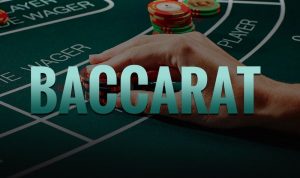Have you ever heard of the live mode? It’s a mode that allows you to play against dealers from recording studios or from a land-based casino. It is one of the latest inventions to emerge in the Nova Scotia market due to telecommunications’ evolution. Present for a large number of tables, the best platforms offer you a wide choice in terms of live games.
Ever since this mode appeared, we can find it in the best online casino. As a rule, all the table games that are common in regular casinos are presented there: baccarat, blackjack, roulette, poker.
Thanks to this, you will be able to feel all the sharpness and excitement of the game. All the sounds and sensations you would hear at a real table are reproduced on your screen with maximum precision, allowing even inexperienced players to enjoy a live online game and feel what it’s like to be in a real casino.
How do Live Casinos work?
Games are streamed live directly into the player’s browser from specially equipped studios. They are equipped with a camera system, which allows you to film and play games in real-time. The dealer’s actions are reflected by the software, which will enable you to play or minimize the game instantly. Players can chat with the dealer and other players as they play for extra fun – or make intelligent bets. Before playing for real money, players can watch free demo videos with the dealer to familiarize themselves with the rules of each game.
This mode should convince even the most reluctant players to play online. Indeed, having access to live tables allows you to enjoy all the advantages of the land-based casino without the latter’s disadvantages.
It’s the perfect way to transport yourself from your Nova Scotia couch to Las Vegas!
Latest Posts From Blog
- New Canadian Casinos: Guide to Finding the Best New Canadian CasinoThe online casino market is rapidly expanding, with new Canadian casinos popping up all the time, offering exciting and innovative […]
- Look back at the history of PlaytechThe history of Playtech began in Estonia. In 1999, Israeli businessman Teddy Sagi founded the company in Tartu. Through partnerships […]
- Pontoon: A portrait of blackjack’s cousinBlackjack has many faces. On the one hand, there is vingt-et-un, the game played in the 18th century at the […]
- The concepts of online baccaratBaccarat is believed to have been invented in France in the 1400s, and its popularity spread to Italy and other […]







